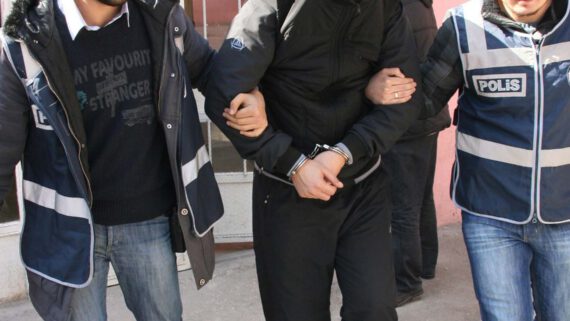For anyone that becomes involved in a legal proceeding there are a number of different courts in which their case may be heard – depending on the nature and seriousness of the case. There are also a number of different higher courts to which appeals can be made. The number of and types of judges that hear cases and make rulings may also vary depending on the type of issue involved. There is no such thing as a jury trial in Turkey and judges take on a more active role in court proceedings.
Trial: Civil & Criminal
Turkish judicial system has significantly changed in the recent periods mainly with the effect of harmonization process of Turkey with the European Union. Fundamental changes were made in the Constitution and other legislation, new implementations were included in the judicial system, new institutions were established or competence and jurisdiction of the existing institutions were rearranged in order to minimize the human rights violations and establish a judicial system, in which people trust.
Judges
Turkish Constitution has adopted the principle of “professional judge”. This principle requires that decisions in courts must be rendered by professional judges and Turkish judicial system does not allow nonprofessional judges to render or take part in a judicial decision.
As well as the judges at benches, the persons in the following positions are considered as “judge”;
- All of the public prosecutors,
- Almost all of the middle level and senior bureaucrats assigned in the central organization of the Ministry of Justice,
- The Council of Judges and Prosecutors (CoJP) and justice inspectors,
- President and members of supreme courts and the public prosecutors assigned in these courts,
- Most of the judges assigned as rapporteurs in the supreme courts.
For those appointed to administrative positions, it is guaranteed by Constitution to be appointed as judges to the courts by the CoJP upon their request.
Judges are split into two categories as “ordinary jurisdiction judges” and “administrative jurisdiction judges” while starting the profession in line with the segregation in the judicial system. “Ordinary jurisdiction judges” are selected from among graduates of law faculties and “administrative jurisdiction judges” are selected from among graduates of either law schools or faculties of political science and faculties of social sciences, which include law courses in their programs at a sufficient level.
Those working under the judge class are split into four levels as third level, second level, candidate for first level and first level by taking into account the period of office and their achievements. These levels are taken into account while they are appointed for certain positions or places. For example, members of supreme courts can only be appointed from among the judges at first level. Professional judges are trained legal experts and are normally employed as civil servants until the age of 65.
Depending on the specific court, a tribunal can be made up of a single professional judge or a combination of professional judges. In minor cases there may be only a single professional judge presiding. Or, if the subject of dispute is severe and the conflicitng sides face heavy sanctions, there may up to be three professional judges.
There are both ordinary and specialized courts in the Turkish justice system.
Ordinary Courts & Specialized Courts
Ordinary Courts hear matters relating to civil, criminal, family and marriage laws. Criminal cases can be assigned to any of the first two Courts. Civil matters are normally assigned to the first two Courts. Appeals can be made to two higher courts.
The special Administrative law courts have three levels and hear cases regarding government regulations and actions.
Labor law courts also have three levels and hear cases regarding employment issues, working conditions and collective bargaining agreements.
Tax Courts have three levels and only adjudicate cases involving tax issues.
No jury system in Criminal Trials
There is no jury system in Turkey. Crimnal court trials are heard by the judge or panel of judges depending on the crime. The court is made up of 1 or 3 judges, alongside the Court Clerk, the prosecutor, the lawyer, the accused and the translator/interpreter. It is compulsory that all of the above are present at the court hearing, otherwise it will be adjourned. All documents related to a case and further evidence must be submitted to the President of the Court. The trial will be held in Turkish. The court appoints and pays for an interpreter. Consular staff cannot act as interpreters. No action can be taken without a court appointed interpreter. Consular Officers usually do not attend the hearings.
It usually takes between 3 to 6 months for cases to be brought to trial.
Evidence Gathering
Physical examinations can be made over the suspect’s objection. Blood samples, for example, may be taken if the alleged offense is related to drugs or alcohol, provided this doesn’t pose a health danger.
Self Incrimination
Under Turkish law the accused is presumed innocent until proven guilty. When authorities question a suspect, they must make it clear that any statement may be used against him or her. A suspect can’t be compelled to testify against himself or herself, and has the absolute right, without undue influence, to remain silent.
Drugs
Drug offenses such as importation, sale or possession of narcotics, including marijuana and hashish, are considered serious crimes.
Detention
Under certain circumstances, suapected parties who are not Turkish may have their passports confiscated to keep them from leaving the country. In serious cases, the suspect may be placed in pre-trial confinement.
Prosecution
The first phase of a Turkish criminal prosecution is pre-trial investigation to determine if there are grounds for a formal indictment. If a prosecutor determines that there is, the case is transferred to the appropriate Turkish court, where the presiding judge decides if the evidence warrants a trial.
Pleas & Evidence
Formal pleas of “guilty” or “not guilty” do not exist in Turkish trials. An accused party can’t plead guilty in order to receive a lesser punishment. Hearsay evidence and, under certain conditions, depositions of absent witnesses can be admitted as evidence in a Turkish court. The attendance of witnesses and the production of evidence can be compelled.
Attorneys
It is wise to have a Turkish defense counsel unless a case is very minor or the charges are undisputed. The right of the suspect and accused to be represented by counsel is carefully protected under Turkish law. In some cases when the suspect and accused is charged with an offense punishable by five year or more of confinement, Turkish law mandates the provision of counsel even if the accused doesn’t wish it.
Attorney fees depend on the length of the trial and the complexity of the case. They can be high if the trial takes more than days, weeks, months, years, or if representation is by an attorney of high repute. There are also court costs that can be high if the case is complex.
Though he/she has the duty of defending the accused to the maximum of his ability, a Turkish lawyer is not as active in court as an American or British lawyer may be. In a Turkish trial, the judge, not the defense counsel or the prosecutor, obtains the testimony of the witnesses. After the judge is finished, the prosecutor and the defense counsel will be permitted to question witnesses. The aim is to obtain the truth from witnesses by direct questioning rather than through the examination and cross-examination.
Victims Rights
The Turkish Code of Criminal Procedure allows victims of an offense, or their survivors, the right to participate in the trial as intervenors or private prosecutors. Intervenors are usually represented by counsel and may produce evidence related to the case, as well as question witnesses.
Sentences
At the end of the criminal trial, the court can give the following verdicts on the defendant:
- acquittal, or not guilty
- imprisonment
- security measures: meaning sanctions that take into consideration the safety of the perpetrator, for example; any mental health issues that need to be addressed
- dismissal of the case
- discontinuance
- no ground for sentence (unlike acquittal, this verdict is given when a crime was committed but the accused is deemed unable to be penalised by law)
Once the defendant is acquitted or completed his sentence he will be released from prison and will be transferred to the nearest Deportation Centre by law enforcement officers. Deportation Centres are run by the Presidency of Migration Management. The foreigners will be deported as soon as possible.
Conviction
If the accused is convicted the court usually will credit the entire period of pre-trial confinement. For many crimes a probation period of two to five years is often imposed on first offenders. Depending on the crime, of course, prison terms can range from one month to life improsenment
Fines can be levied for violations of traffic, environmental, consumer protection and unfair competition laws. Also, objects used in the violation of a law (a car, for example) may be confiscated.
Confinement begins immediately after the judgment of the court is announced at trial, unless an appeal is pending. In this case the judgment doesn’t become legally effective until and unless the appeal is denied or withdrawn.
Appeals
Although Turkish law protects the accused from being repeatedly prosecuted or subjected to double jeopardy, the prosecution as well as the defense may appeal a court judgment, and such an appeal by the prosecution is not considered double jeopardy. Notification for appeal must be submitted within one week after the oral announcement of the court’s judgment.
Your lawyer can appeal against the final decision within seven working days, and make sure that the sentence is reviewed by an Appeal Court. There are two levels of appeal; the first one is the District Appeal Court and the second one is the Supreme Court in Ankara (capital of Turkey)
The appeal process is very slow can lead to delays in finalising the sentence. Because the appeal must be finished before a prisoner can apply for prison transfer to the home country, this process can cause a long delay. Prisoners have a right to withdraw the appeal if they wish.
Legal assistance
If you wish to hire a private lawyer, get in touch with Bicak Law on +90 532 377 01 06 or contact@bicakhukuk.com. We have a specialist team of criminal defence lawyers, attorneys and advocates available to advise and represent clients that are either involved in an investigation or have recently been charged with a criminal offence. We will ensure that you receive robust and professional advice from our lawyers who will keep you updated throughout the legal process.
If you decide to hire and pay for one of our criminal defence lawyer, it may be possible to agree a flat fee for the whole case before we begin work so that you do not find yourself facing ‘extra expenses’. We ask for a down payment before we start representing you.
 English
English Türkçe
Türkçe Français
Français Deutsch
Deutsch



